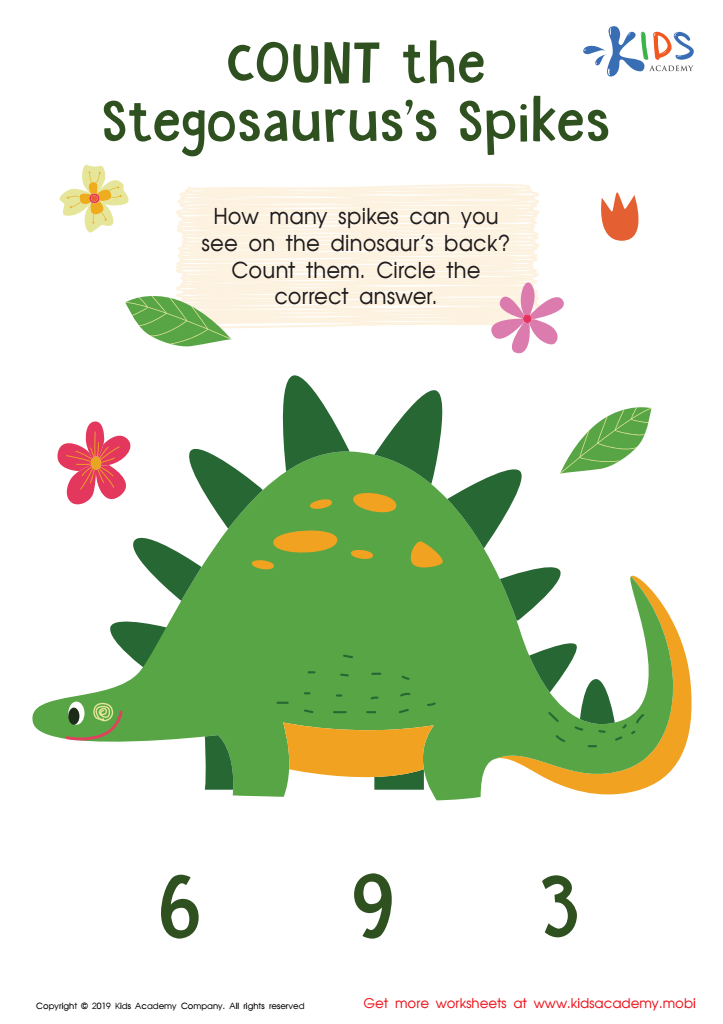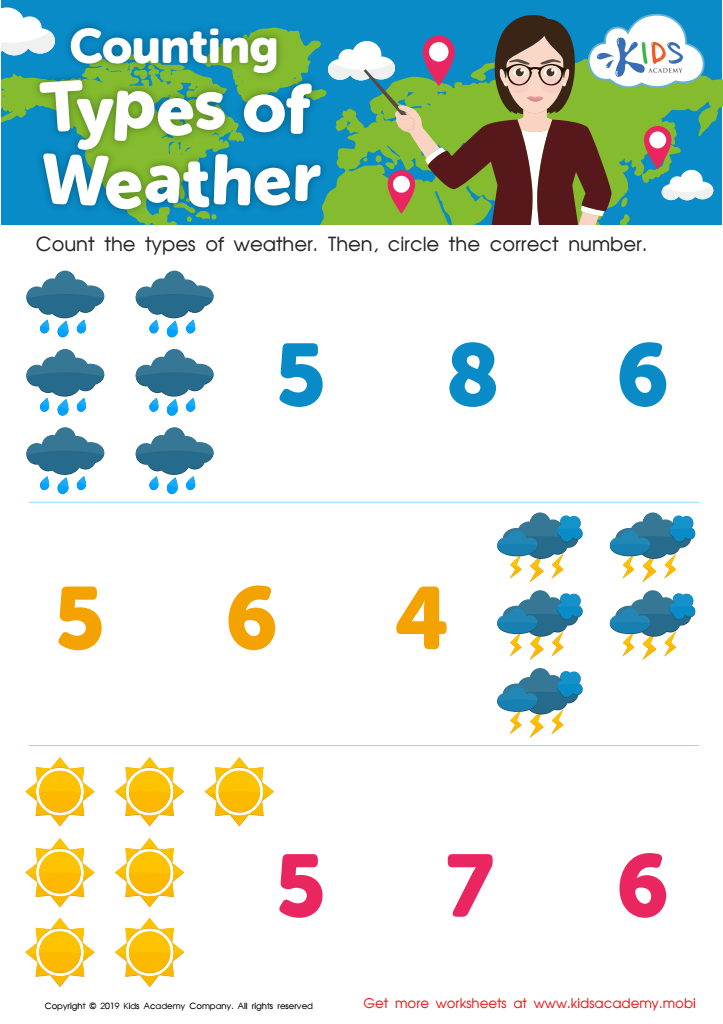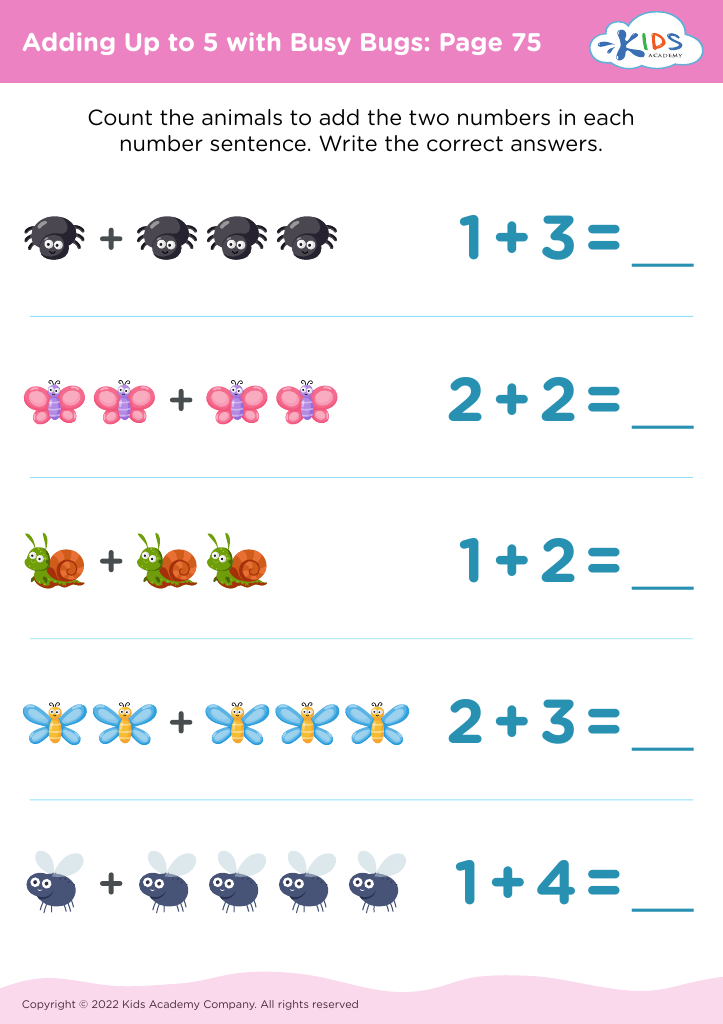Number counting Worksheets for Ages 5-6
3 filtered results
-
From - To
Explore our engaging Number Counting Worksheets for Ages 5-6! Designed to boost your child's numerical skills, these worksheets feature fun and interactive activities tailored to early learners. Through various exercises, children will practice counting objects, recognize numbers, and develop essential math skills in a playful environment. Each worksheet is crafted to enhance counting confidence and encourage a love for learning. Perfect for home or classroom use, our resources are easy to print and adapt to meet your child’s learning needs. Help your little ones embark on their educational journey with these exciting number counting worksheets that make math enjoyable and accessible!


Count the Stegosaurus's Spikes Worksheet


Counting Types of Weather Worksheet
Counting is a foundational skill in early childhood education that underpins children's mathematical development and cognitive growth. For children ages 5-6, mastering number counting will not only enhance their numerical understanding but also pave the way for more advanced math concepts in the future, such as addition, subtraction, and probability. Parents and teachers should care about counting at this age because it's crucial for building a solid mathematical foundation.
Furthermore, counting supports the development of critical thinking and problem-solving skills. As children engage in counting activities, they learn to recognize patterns, make comparisons, and understand sequencing. These skills translate beyond math into other subjects, including science and reading.
Socially, counting activities can foster cooperation and communication among peers. For example, counting games and group activities can enhance social interaction, allowing children to practice sharing and turn-taking.
Lastly, understanding numbers empowers children in everyday life. From managing personal finances to measuring ingredients in cooking, counting is a skill they will use throughout their lives. Thus, fostering number counting skills in young children is not just about academics; it is about enriching their overall development and equipping them for success in their future endeavors.
 Assign to My Students
Assign to My Students








.jpg)











